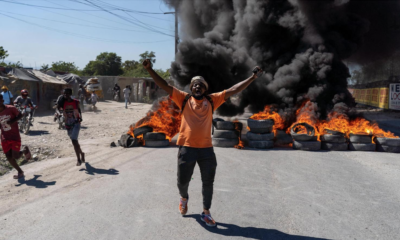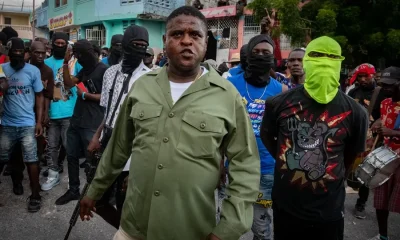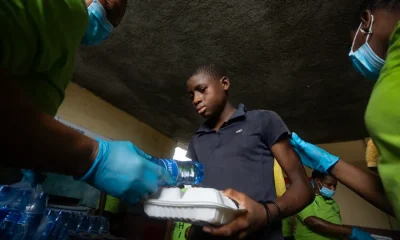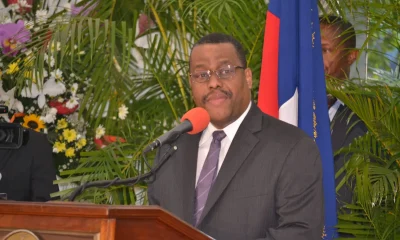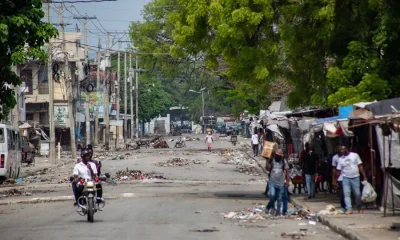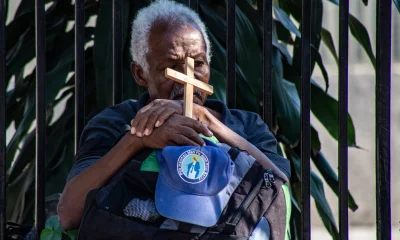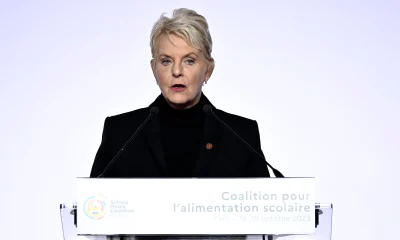International
Haiti, in a deadlock, waiting for a transitional government
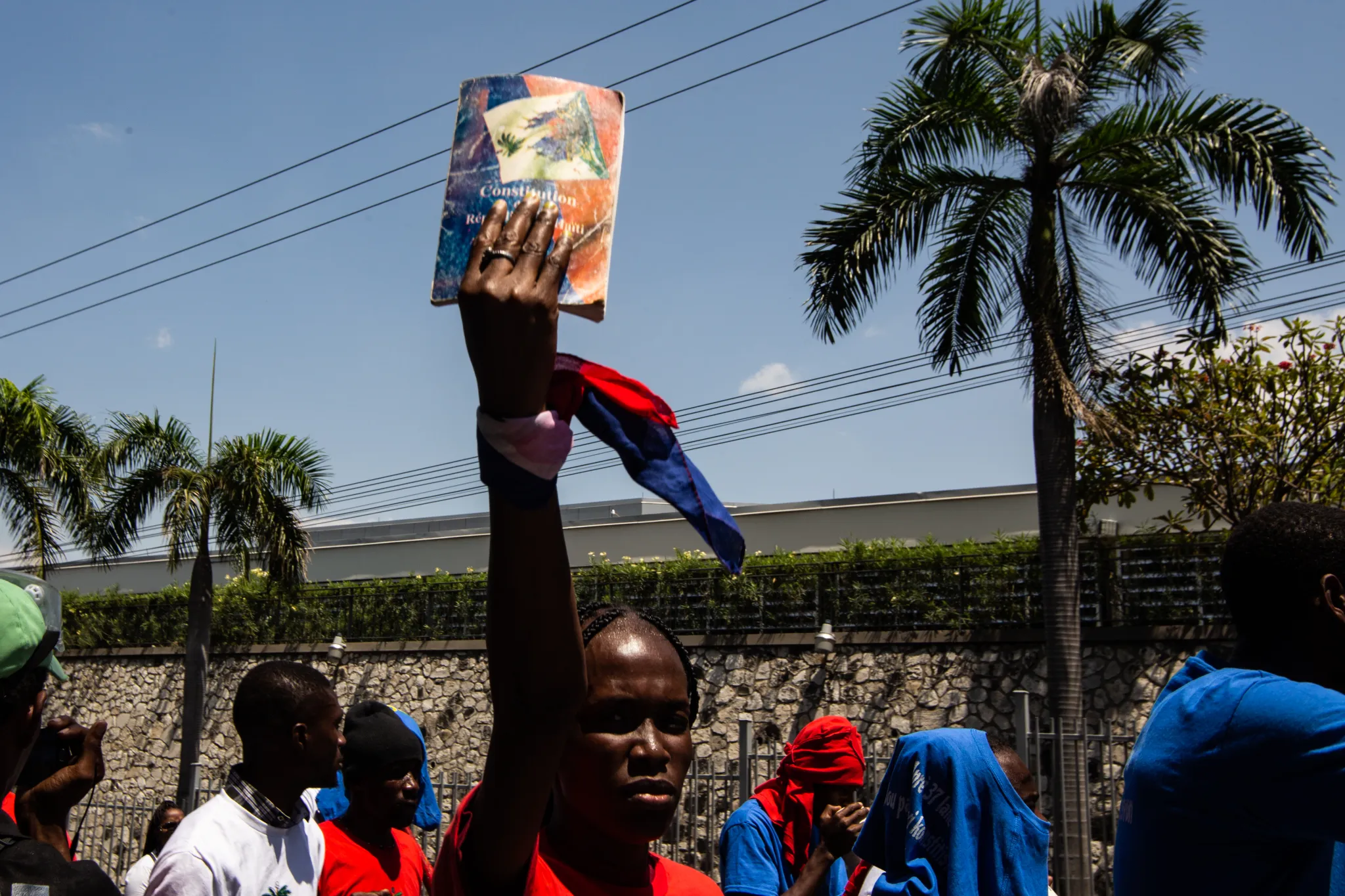
The situation in Haiti remains at a standstill, a month after the escalation of chaos and violence began and the council that must lead the transition in the country, where elections have not been held for almost eight years, has not yet been established.
For a month, the impoverished Caribbean nation has been experiencing an escalation of violence at the hands of the armed gangs, who joined forces to demand the resignation of the Prime Minister, Ariel Henry, and who on March 2, in the midst of chaos and horror, attacked two of the main prisons, from which about 3,600 inmats would have fled, many of them bandits known for their extreme cruelty.
The seriousness of the events, which have forced the closure of schools, hospitals and airports, led the authorities to declare the curfew in the department of the West, where the country’s capital, Port-au-Prince, is located, and where a state of emergency has also been in force since then.
All this happened in the absence of Henry, who was then visiting Kenya to agree to send the multinational security support mission that Haiti awaits and whose deployment is also paralyzed.
Ariel Henry, who took office in June 2021 after the assassination of President Jovenel Moise, has not been able to return to his country and is currently in the United States after several days stranded in Puerto Rico, from where on March 12 he agreed to resign to give way to a transitional government in Haiti, where elections have not been held since November 2017 when the failed ruler was elected.
However, three weeks after its formation was reported, the Presidential Council, in charge of carrying out the transition, still does not carry out its official inauguration, which, as agreed, will be followed by the appointment of a prime minister, with whom it will form a Government of National Unity.
Once this institution is implemented, Henry will leave power in the impoverished nation whose situation, according to the UN, is a “cataclysm” with more than 1,500 deaths at the hands of armed groups so far this year.
In its first communication, issued this week, the council promised stability and return the country to the path of democratic legitimacy and dignity.
Although the situation is stagnant, violent acts continue to be reported, although to a lesser extent than at the beginning of the month, while countries continue to evacuate their citizens.
Precisely this same Sunday, local media reported shots when a French Navy helicopter evacuated citizens of the European nation, although no one was injured.
Likewise, it was reported that two men were lynched by a mob that took them out of a police detachment, which had previously arrested them when they were supposed to buy weapons for the gangs.
The events occurred in the town of Mirebalais and, according to the Police, the two men had with them the equivalent of more than 50,000 dollars, which were presumed to buy weapons and ammunition.
The dead were identified as Alexandre Ananel, a police officer; and Musca Michelet, a security officer of the Provisional Electoral Council.
Meanwhile, one of the latest kidnappings that is known is that of the American YouTuber of Lebanese origin Addison Pierre Maalouf, who, according to several reports, traveled to Haiti to interview the powerful leader of armed gangs in Haiti Jimmy Chérizier, alias Barbecue.
After several days kidnapped, the man was released on Saturday, as he himself announced on social media.
All this happens in a country with an economy that continues to plummet after the contraction of GDP last year, of 1.8% compared to 1.7% in 2022, and in which 5.5 million people, half of its population, need humanitarian aid.
Central America
Senator Van Hollen Meets with Deported MS-13 Member in El Salvador; Trump and Bukele React

U.S. Democratic Senator Chris Van Hollen, representing the state of Maryland, held a meeting in El Salvador with deported MS-13 gang member Kilmar Ábrego García, a member of the criminal group classified by the U.S. government as a terrorist organization.
“Kilmar Ábrego García, miraculously resurrected from the ‘extermination camps’ and ‘torture chambers,’ now sipping margaritas with Senator Van Hollen in the tropical paradise of El Salvador!” wrote President Nayib Bukeleon X (formerly Twitter), sharing photos of Van Hollen, Ábrego García, and a lawyer sitting together at a Salvadoran hotel.
The deported gang member is seen wearing a plaid shirt and a flat-brimmed cap, seated at a table with glasses and coffee cups. The senator also shared images of the meeting on his own social media accounts.
Bukele reaffirmed that Ábrego will remain in El Salvador and will not be returned to the United States.
“Now that his health has been confirmed, he has earned the honor of remaining under the custody of El Salvador,” Bukele added.
Former U.S. President Donald Trump criticized the senator’s meeting with Ábrego on Truth Social, calling Van Hollen “a fool” for advocating for Ábrego’s return to the U.S.
International
Pope Francis Appears for Easter Blessing, Calls for Peace and Religious Freedom

Pope Francis, still recovering from pneumonia, appeared on the balcony of St. Peter’s Basilica in the Vatican on Easter Sunday and, with a faint voice, wished a “Happy Easter” to the thousands of faithful gathered to celebrate the Resurrection of Christ.
A month after being discharged from a lengthy hospital stay, the presence of the 88-year-old pontiff had remained uncertain, with the Vatican not confirming his attendance ahead of time.
Eventually, the pope made a brief appearance in a wheelchair shortly after 12:00 p.m. (10:00 GMT) to deliver his traditional “Urbi et Orbi” blessing (“to the city and to the world”).
Although no longer wearing an oxygen cannula, the Argentine Jesuit relied on a close aide to read his Easter message, which touched on major global conflicts.
Francis condemned the “dramatic and unworthy humanitarian crisis” in Gaza and called for a ceasefire, while also expressing concern over the “growing climate of antisemitism spreading across the globe.”
He further emphasized the importance of religious freedom and freedom of thought, stating that without mutual respect, “peace is not possible.”
International
Thousands rally nationwide against Trump’s threat to U.S. democracy

Thousands of protesters gathered on Saturday (April 19, 2025) in major cities like New York and Washington, as well as in small communities across the United States, in a second wave of demonstrations against President Donald Trump. The crowds denounced what they view as growing threats to the country’s democratic ideals.
In New York City, demonstrators of all ages rallied in front of the Public Library near Trump Tower, holding signs accusing the president of undermining democratic institutions and judicial independence.
Many protesters also criticized Trump’s hardline immigration policies, including mass deportations and raids targeting undocumented migrants.
“Democracy is in grave danger,” said Kathy Valyi, 73, the daughter of Holocaust survivors. She told AFP that the stories her parents shared about Adolf Hitler’s rise to power in 1930s Germany “are happening here now.”
In Washington, demonstrators voiced concern over what they see as Trump’s disregard for long-standing constitutional norms, such as the right to due process.
-

 International5 days ago
International5 days agoArsenal stun Real Madrid at the Bernabéu to reach Champions League semifinals
-

 Central America4 days ago
Central America4 days agoNicaraguan Exiles to Mark 7th Anniversary of 2018 Protests with Global Commemorations
-

 International4 days ago
International4 days agoDominican ‘False Hero’ Arrested for Faking Role in Nightclub Collapse That Killed 231
-

 International3 days ago
International3 days agoACLU seeks emergency court order to stop venezuelan deportations under Wartime Law
-

 Central America3 days ago
Central America3 days agoUN complaint filed against Costa Rica over detention of migrant children
-

 International5 days ago
International5 days agoDeSantis’ immigration crackdown sparks alarm in Venezuelan Communities in Doral
-

 International2 days ago
International2 days agoThousands rally nationwide against Trump’s threat to U.S. democracy
-

 Central America24 hours ago
Central America24 hours agoSenator Van Hollen Meets with Deported MS-13 Member in El Salvador; Trump and Bukele React
-

 International24 hours ago
International24 hours agoPope Francis Appears for Easter Blessing, Calls for Peace and Religious Freedom














